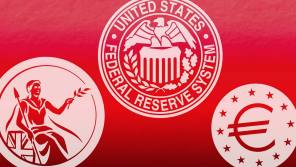
Brexit, low interest rates and increased political volatility have all conspired to rattle investors in European equities but there are still exciting companies to be found, managers have claimed.
James Milne, co-manager of the Crux European fund at Crux Asset Management, and Tim Crockford, European equities portfolio manager at Hermes Investment Management, discussed their outlook with Investment Adviser's Eleanor Duncan.
On the subject of Brexit, Mr Milne said that "increased uncertainty usually brings opportunities" for bottom-up stock pickers as they can get good companies that have been sold off.
He explained: "There is always something to worry about. Stock markets are like children, they can only concentrate on two things at once - Brexit and low interest rates - and then there is the US election as well."
"With all the geopolitical landmines there are", Mr Crockford said, "We find the European economy itself is not that bad. It is a long way from being great, and a long way from being recovered but from a consumer point of view, things are not that bad and growth is still on the right path.
"Markets and indices are composed of individual equities and all this geopolitical noise gives the opportunity to get into new names that are not that sensitive to the interest rate cycle or the general macro picture."
Both commented that when looking at equities, there were many good global companies in Europe to choose from, regardless of what markets are doing.
For example, there are always good management teams that can take out costs and do clear acquisitions; these are the sort of European companies that Mr Milne described as "exciting".
Mr Milne said European Central Bank (ECB) policy, in general, had helped some of the companies he looks at, as one-third tend to do "bolt-on acquisitions" so with interest rates being lower, the cost of the debt was cheaper, so in general, "all their deals are accretive from the get-go".
However, he has avoided having too many banks in the portfolio, as the low interest rate environment has been "very difficult for the net interest margin the banks make", he commented.
Mr Croxford said: "It has been more about valuation. If you consider the low growth environment we are in with the bouts of volatility, what has changed for us is trying to decipher which companies are undervalued.
"As long-term investors, this has created both risks and opportunities and we have used this volatility to enter into new names when they may have been pulled down by geopolitical risk."
Mr Croxford said there was a "more rational environment" in Europe, as companies had to "clean up their shops" after the financial crisis of 2008, and starting to pay out dividends.
According to Mr Milne, there has been an improvement in European dividend payouts. "From the companies we see, some have really been focusing on free cash flow and focusing on giving a return back to the shareholders."



